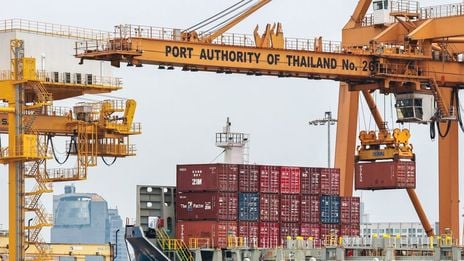The United States has withdrawn from negotiations in London aimed at advancing decarbonization in the maritime transport sector, and Washington is considering « reciprocal measures » to offset any tax imposed on American ships, according to a diplomatic note.
Delegates are meeting this week at the headquarters of the UN’s maritime agency to negotiate decarbonization measures designed to help the global maritime industry reach zero emissions by around 2050.
An initial proposal presented to the International Maritime Organization (IMO) by a group of countries, including the European Union, aimed to reach an agreement on the world’s first carbon tax on greenhouse gas (GHG) emissions in the maritime transport sector.
« The United States rejects any efforts to impose economic measures on its ships based on greenhouse gas emissions or fuel choice, » according to a diplomatic démarche sent to ambassadors by the U.S.
« That is why the United States will not participate in the negotiations of the third committee on marine environmental protection of the IMO, which will be held from April 7 to 11, and strongly urges your government to reconsider its support for the GHG emission measures currently under consideration. »
It is unclear how many of the 176 IMO member countries received the note.
« Should such a manifestly unjust measure be adopted, our government would consider reciprocal measures to offset any tax imposed on American ships and to compensate the American people for any other economic harm caused by the adopted GHG emission measures, » the note from Washington states.
Washington also opposes « any proposed measure that would finance environmental projects or other initiatives unrelated to the maritime transport sector, » the note adds.
When contacted late Tuesday, U.S. officials in Washington declined to comment immediately.
The IMO has not yet received any communication, said an IMO spokesperson on Wednesday.
Maritime transport, which accounts for about 90% of global trade and represents nearly 3% of global carbon dioxide emissions, has faced calls from environmentalists and investors to take more concrete actions, including imposing a carbon tax. (Reporting by Jonathan Saul, Michelle Nichols, Gram Slattery, and Kate Abnett; Editing by Sharon Singleton)
Source: zonebourse




